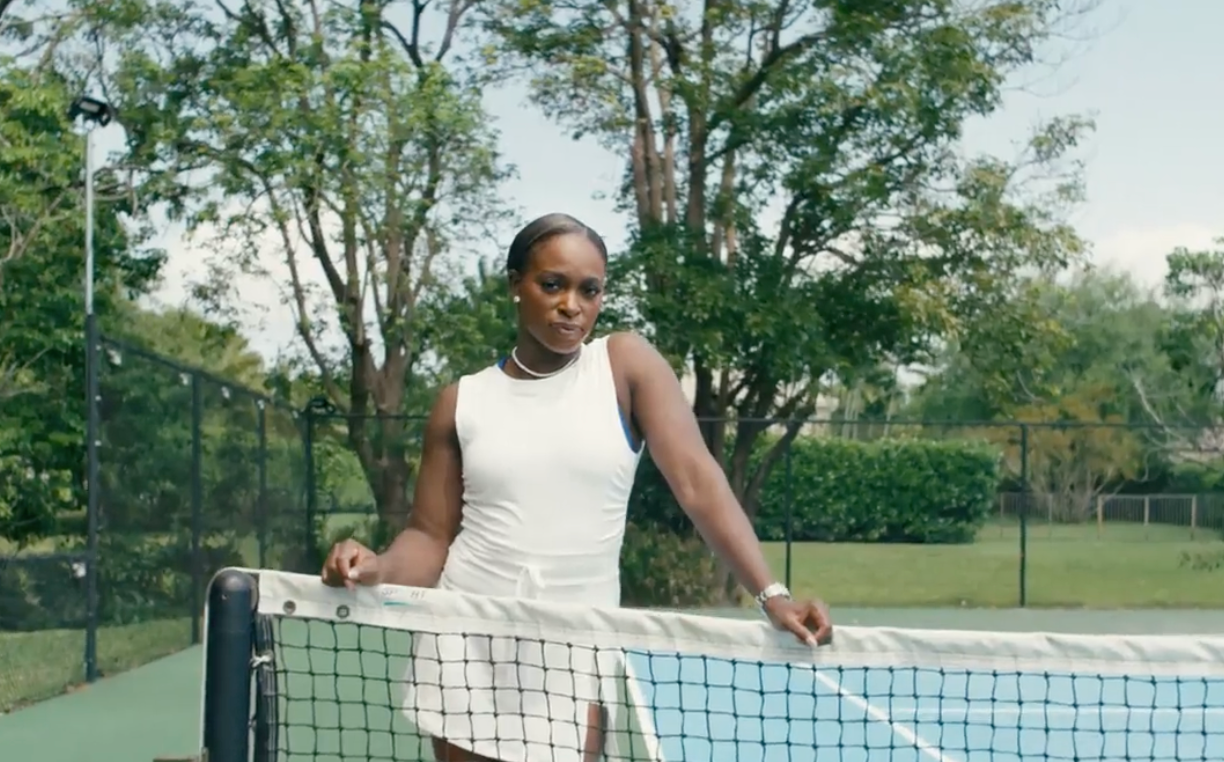
Grand slam tennis champion Sloane Stephens is looking towards the future. In addition to competing in the world’s biggest tournaments in the hopes of lifting more trophies in the air, she’s also looking forward to expanding her family with her husband, soccer player Jozy Altidore. Realizing she wasn’t interested in having to choose between being on tour and motherhood, she recently made the decision to freeze her eggs.
“I’ve always wanted to be a mother and have a large family one day, including both biological and adopted kids. I think it’s all wonderful,” Stephens says, sharing that her mom was the seventh of eight children. She’s also a mother figure for Altidore’s son, Cameron. “With a grandfather who was a Howard-educated OBGYN, I always had an awareness of fertility, maternal health, and the importance of advocating for my health as an African American woman.”
She adds, “I’m considered a veteran on tour at 31 and still very much passionate about competing in my sport, but I wanted to freeze my eggs so that I could focus on the present without fearing what doors I might be closing or making more difficult once my tennis chapter is closed.”
Stephens’s fear is prevalent among not only fellow women tennis players and athletes but also for many career women in general. Concern over how one’s success in their chosen field can be impacted by parenthood and vice versa can create great stress. In the sport of tennis, taking time away to focus on fertility, including freezing one’s eggs, can affect your ranking. Stephens is fighting to change that.

In a campaign she just announced with fertility clinic network Kindbody, with whom Stephens underwent the process, she is sharing her egg freezing journey, showcasing parallels between the hard work required both in training to be a champion athlete, and also to prepare for motherhood. She’s been lobbying to make egg freezing a protected activity in tennis so that a woman’s ranking won’t change for three months while they go through the procedure. Protected rankings allow top-tier players to return to the game relatively unscathed after a prolonged time off, which is often allowed in the case of injury.
We spoke with Stephens about her efforts to help ensure that women in tennis have options and go without fear as they balance professional and personal pursuits. She filled us in on what the process to freeze her eggs has been like, and what the future holds for her on and off the court.
ESSENCE: Going into the process, did you have much knowledge about how freezing eggs works?
Sloane Stephens: I had spoken with a few people and understood the general timeline, but the Kindbody team really demystified the process and made sure that each step felt very achievable and I that I understood exactly why each step was happening. As a pro athlete who is in the mandatory drug testing pool, it is critical that I understand everything that is going into my body. The entire Kindbody team was an incredible partner in this process and communicated really effectively to make sure that everything was cleared and properly documented.
In what ways did the process impact your ability to train and compete, and how did that inspire you to lobby for egg freezing to become a protected activity in your sport?
Egg retrieval is a medical process that does have a physical impact on the body. During my first retrieval cycle, I ended up gaining around 20 pounds due to hormones and taking a break from training that, going forward, I would be more aware of and plan differently for my next cycle this off-season. It is also important to rest and not over-exert yourself, at the risk of developing ovarian torsion or other complications, so I had to really plan out my training blocks and off-season to make it all happen. Because of this, I am really passionate about introducing protected rankings for players undergoing fertility treatments so that they can feel supported in making decisions for themselves and properly caring for their bodies without rushing back out of fear of ranking points or career setbacks.
Do you, based on conversations you’ve had with women you play with, find that women tennis pros feel like they are often forced to choose between the sport and starting a family? And how has egg freezing freed you from that struggle?
As athletes generally, we’re used to making sacrifices for our sport. Female athletes have an additional layer of fertility to consider throughout our careers. In speaking with a lot of fellow women on tour about fertility, some equate fertility preservation or family planning as yet another sacrifice for the sport, like missing a birthday or being on the road 40+ weeks per year. My hope in partnering with Kindbody to share my experience and raise awareness is that women who are focused on their careers, including fellow athletes, feel comfortable and encouraged to explore the possibilities and not feel that a career has to come at the expense of a family or vice versa. Every family looks different and can come in its own time. I hope to foster a culture and space, especially within my immediate world of pro tennis, where my colleagues are empowered to explore all of their dreams.
That said, what are your hopes for the future as it relates to tennis, as well as family life?
Health and happiness in all aspects! I love playing tennis and am still super motivated to compete. I also have a lot of outside interests and projects that I’m developing and looking forward to bringing to fruition.







